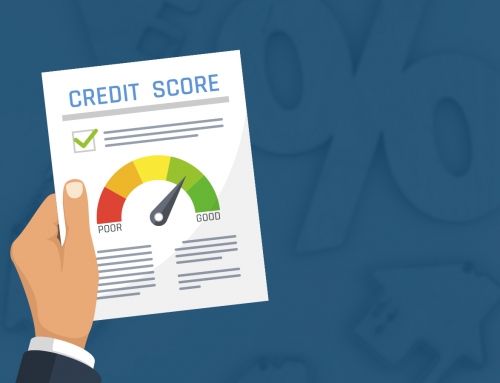What is a Hard Inquiry and How Does it Impact Your Credit?
Let’s say you’re looking into a new credit card. You finally find the right card for you, but when you look into the application process, you realize it requires a hard inquiry. What exactly is a hard inquiry? Will it affect your credit score?
Hard inquiries get reported on your credit report when someone checks your credit for the purpose of considering your for a loan or credit card. The items do impact your credit, so it’s important to understand what they are, why they’re there, and how you can limit them. Find our more about hard inquiries and how to keep them from lowering your credit unnecessarily below.

What are Hard Inquiries?
Credit inquiries occur whenever someone accesses your credit account. The credit bureaus note this information, recording the date and the name of the company or entity accessing your information. Hard inquiries specifically refer to instances when a lender accesses your credit report for the purpose of evaluating you as a borrower. In other words, hard inquiries happen when lenders look at the information in your report to decide whether to approve or deny your application for credit.
How Do Hard Inquiries Impact Your Credit?
Your credit score is affected by 5 criteria:
Payment History – Whether you pay your bills on time and as agreed accounts for around 35% of your credit score.
Credit Utilization – How much of your available revolving credit limit you’re actively using accounts for around 30% of your score.
Credit History – How long you’ve had credit and the age of your oldest accounts contributes to around 15% of your score.
Types of Credit – Creditors want to see if you can manage different types of accounts, such as revolving and installment accounts. Credit mix makes up around 10% of your score.
Hard Credit Checks – The number of recent hard inquireis on your report makes up about 10% of your score.
While hard credit checks may only make up 10% of your score, it can still make an impact. According to Experian, hard inquiries will stay on your credit report up to 25 months. However, they ony tend to impact your credit score in the first 12 months. The impact of hard inquiries on your credit score depends on a variety of factors. Experian notes the average affect on your score from a hard inquiry can be 5-10 points. With excellent credit nad no other issues, that drop might be even less.
How Many Hard inquiries is Too Much?
There is no set number of inquires that are too many. If you suddently have several inquiries, it can look bad to potential creditors. And, if you’re losing up to 10 points for each inquiry, you could drop from excellent or good credit to fair or poor credit within just five or more inquiries.
Spacing out the inquiries and ensuring that your credit report doesn’t take a hit can help minimize these issues. It also gives your score time to recover before another inquiry.
Hard Inquiries vs Soft Inquiries
Not all inquiries that show up on your credit report impact your score. Only those that are meant to evaluate your credit do. Soft Inquiries which are informational only have little to do with credit, don’t have the same impact. They’re also not usually visible to people other than you.
Examples of Hard Inquiries:
- Credit card company checking your credit after applying for a card.
- A bank checking your credit because you applied for a car loan.
- A company checking your credit before leasing you a car.
Examples of Soft Inquiries:
- You check your credit for informational purposes.
- An employer checks your credit as part of a background check.
- A credit card company does a soft pull on your credit to pre-qualify you for an offer.
Soft inquiries don’t always require your permission. While employers have to get your permission to run background checks, creditors don’t need permission to run a soft check to pre-qualify you for marketing offers. You do have the option to opt-out of those marketing soft checks.

Minimizing Credit Score Impact from Hard Inquiries
So, how do you reduce the impact of hard inquiries on your credit score? In this day and age, it can be difficult to go through life without ever applying for credit. But you can take some of the steps below to reduce how much hard inquiries impact your score.
1. Don’t Spread Out Loan Shopping
The credit scoring models know that you’ll want to shop around for the best rates. Because of that, multiple applications for credit during short periods of time can be treated as a single inquiry on your credit report as for as impacting your score goes.
For example, under the FICO Score model, inquiries related to an auto loan, mortgage loan, and student loan applications within a 45-day period are treated as a single event. And any inquiries that occur within 30 days prior to a score being pulled won’t impact the score at all.
The Vantage Score model considers multiple inquiries to be one hard inquiry if they take place within a 14-day period. This includes applications for mortgages and vehicle loans, utility services, and some other credit inquiries.
2. Keep Tabs on Your Credit Report
You only know if inquiries are impacting your credit if you’re tracking your report and score. Check your credit regularly to understand where you stand and whether there are any potential mistakes bringing your score down. You can check your score by logging onto myannualcreditreport.com or by going onto one of the three major credit reporting agencies’ websites: Experian, Equifax, or Transunion.
3. Don’t Apply If You Are Not Serious About Getting Credit
Avoid having a Hard Inquiry just to see your score and only apply when you need the credit. Otherwise, you’re racking up hard inquiries for no reason.
4. Manage Other Aspects of Your Score Responsibly
Make payments on time, keep your credit utilization low and manage multiple types of accounts well. These all have more impact on your credit score than hard inquiries. If your credit is already strong, a hard inquiry won’t impact it as much.
Can You Remove Hard Inquiries from Your Credit Report?
You can’t get legitimage hard inquiries removed from your credit report. Although, if you do see Hard Inquiries that you did not authorize, you can challenge them.
Challenge errors on your credit report by writing a letter to the credit bureau in question and ask for verification if the error is in question. Let them know the issue and why you believe the information is wrong. Ask them to remove the inquiry. The credit bureau must investigate your claim and remove the inquiry if they deem that it’s on your report in error.
Keep an Eye on Hard Inquiries
In a nutshell, hard inquiries aren’t anything to be scared of. If you keep your credit applications relatively low, and if your credit is in good shape, you have nothing to worry about. But, with that said, you do need to look out for the number of hard inquiries made into your credit score. Your credit score could take a hit – if you are not careful.





